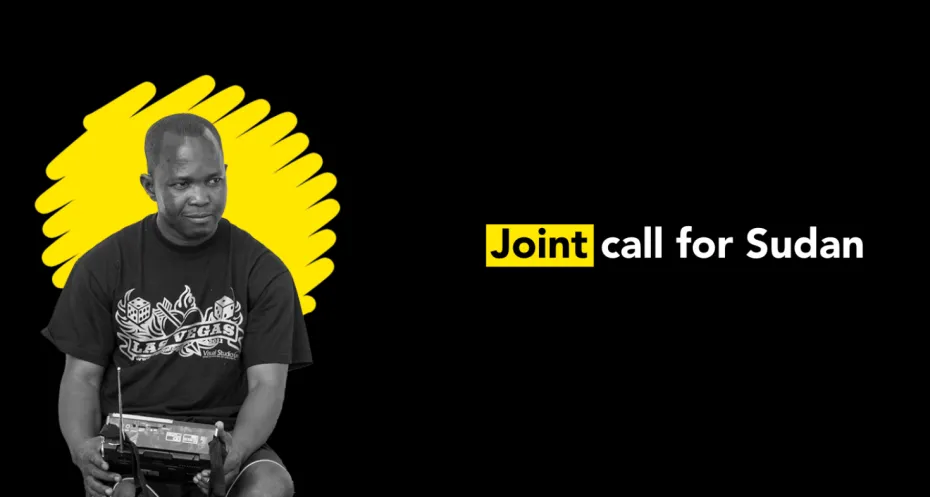INGOs call on EU for ‘urgent, strategic, and concrete steps’ to address Sudan’s humanitarian crisis

Photo: Free Press Unlimited (fpu.org)
Several prominent international human rights organisations, press freedom advocates, and humanitarian organisations, have addressed a joint open letter to the High Representative of the European Union (EU) for Foreign Affairs and Security Policy and vice-president of the European Commission, Josep Borell Fontelles, as well as the foreign affairs ministers of the EU member states, urging “urgent, strategic, and concrete steps to respond to the massive cost on civilians of the dramatic human rights and humanitarian crisis in the country and prevent further violations”.
The open letter to mark a year since the outbreak of the conflict, and jointly signed by Amnesty International; Brot für die Welt (Bread for the World); Cairo Institute for Human Rights Studies; Christian Solidarity Worldwide; Finn Church Aid, Finland; Free Press Unlimited; Front Line Defenders; Human Rights Watch; International Federation for Human Rights; International Service for Human Rights; Protection International Institute, calls on the European Union and its member states to respond to this conflict urgently by engaging with the parties to the conflict and their regional supporters to stop all attacks on civilians and civilian infrastructure, and to end the deliberate obstruction of relief.
“Since fighting broke out in Sudan’s capital, Khartoum, both the Sudan Armed Forces (SAF) and the Rapid Support Forces (RSF) have repeatedly used heavy explosive weapons in densely populated areas of the capital and conducted indiscriminate attacks, resulting in numerous civilian casualties and the destruction of critical civilian infrastructure including schools, hospitals, mosques and churches. Aid workers and humanitarian convoys have also been targeted by parties to the conflict,” the letter laments.
“As civilians across Sudan continue to bear the brunt of the fighting and warring parties continue to disregard the rules of international humanitarian law, our organisations urge the EU and its member states to respond to this conflict with renewed urgency,” the letter states.
EU calls for ceasefire
The letter follows a statement by Josep Borrell Fontelles, and European Commissioner for Crisis Management, Janez Lenarčič on Monday, that acknowledges that “the world’s worst, most complex and cruel crisis, is unfolding in Sudan”, adding that “the suffering is entirely manmade and could be stopped today”, calling for “an immediate ceasefire, access to humanitarian aid, and for the warring parties to join negotiations for peace”.
Borrell and Lenarčič assert that “external sponsors, bringing in cash and weapons, fuel the fighting”… players like Iran are delivering arms, including drones, to the SAF. The United Arab Emirates have also direct leverage on the RSF that they should use to end the war. Russia plays both sides in the hopes to get access to strategic infrastructure and resources, including with mercenary PMCs, which are mainly after gold and minerals.”
‘Late in coming’
Observers told Radio Dabanga this week that the European position towards the war in Sudan represents a shift in international trends following the conflict in Sudan, but “it is late in coming”.
Journalist and political analyst Abuzar’a Ali believes that the new position of the European Union in directing accusations against supporters of the parties to the conflict in Sudan has a lot of positivity. In an interview with Radio Dabanga, Ali asserted that “the position was late in coming”. He indicated that it represents a shift in international trends in the conflict in Sudan, “which is more in the interest of the post-war future than it is useful right now.”
Legal expert El Sadig Hasan proffers that “Sudan has become a theatre for conflicts of regional and international interests,” and confirms that the accusations launched by the European Union against Iran, Russia, and the UAE of supporting the parties to the war in Sudan are correct because there is a ‘race’ for interests in Sudan.











 and then
and then